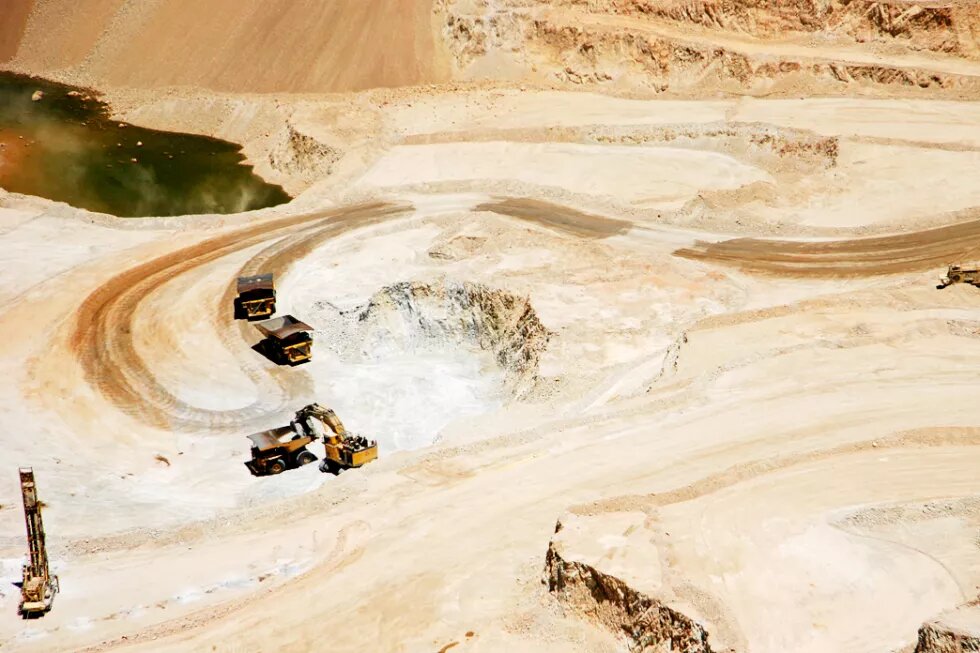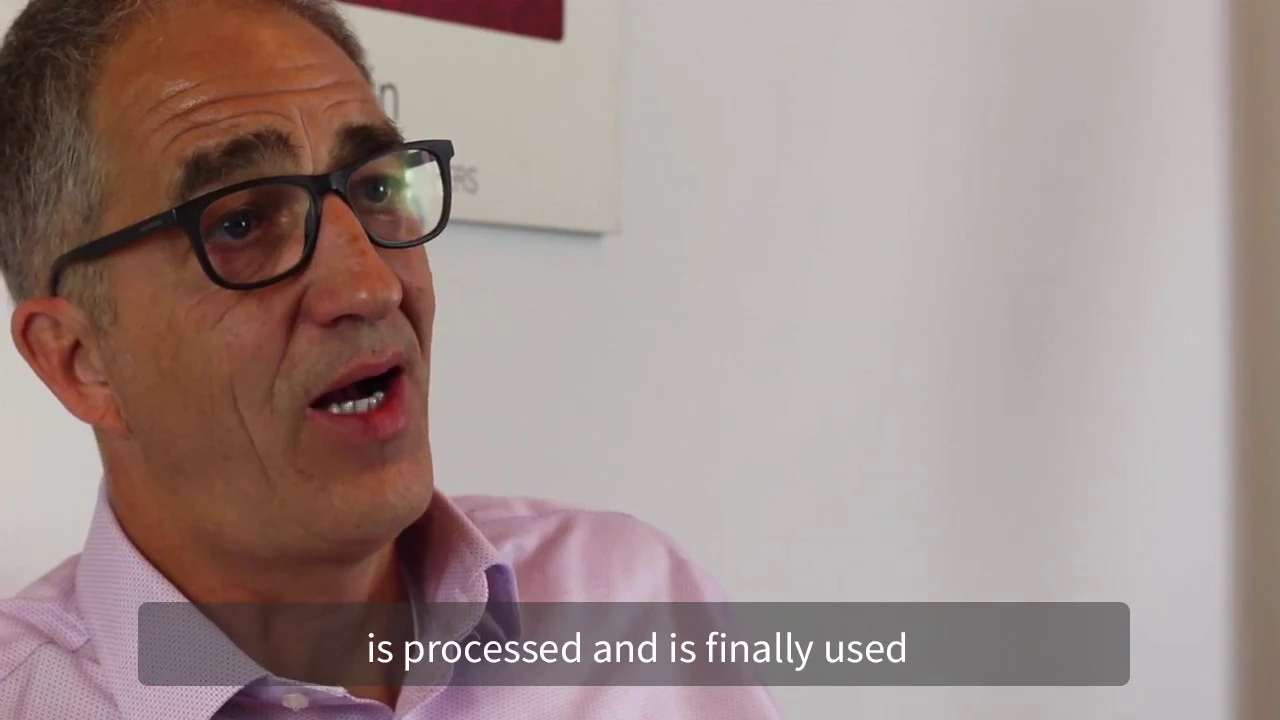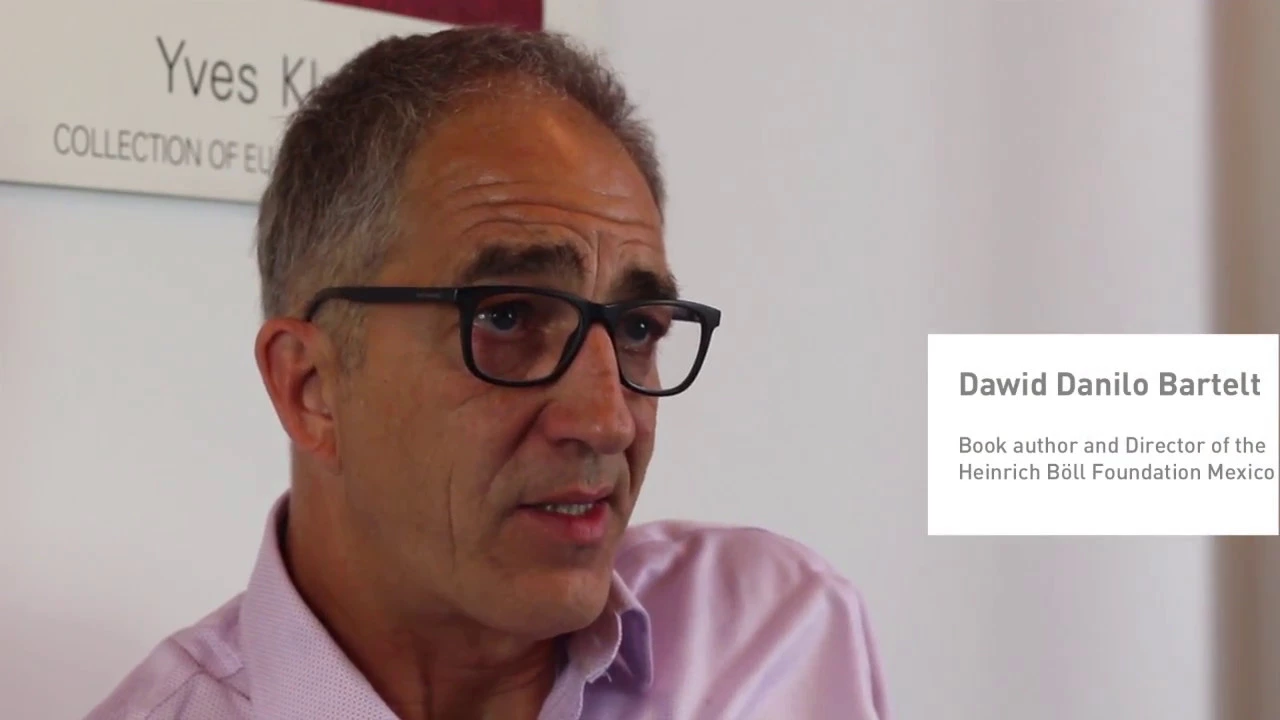Natural resource extraction in Latin America leads to blatant human rights violations and conflict. Dawid Danilo Bartelt, book author and Director of the Heinrich Böll Foundation in Mexico explains in an interview with ECC why resolving commodity-related conflicts will be impossible without a strong civil society, and points to a special responsibility of European consumers.

The unprecedent level of resource exploitation in Latin America and the plethora of conflicts that arises from this (still growing) trend.
In the interview with Dawid Danilo Bartelt, book author and director of the office of the Heinrich Böll Foundation in Mexico
Tragic consequences of rising resource extraction in Latin America - Interview with Dawid Bartelt - adelphi, Berlin
 Watch on YouTube
Watch on YouTube
"Exploiting resources or using resources is something that people have done since the very start. However, in recent decades, the amount of resources used has increased and the related consequences have become more severe. Latin America, in particular, is a focus of this development. Nowhere else has the exploitation of resources increased as drastically in the past two decades and nowhere else have social as well as ecologic conflicts picked up more momentum.
Since the late 1990s, especially in the early 2000s, we have witnessed very high commodity prices on the global markets. Latin American states have taken advantage of this situation and have increased their exploitation of resources accordingly. In consequence, conflicts – and we are talking about real conflicts in which people lose their livelihoods; in which people’s rights are violated – have increased drastically.
The process in which a piece of copper that was extracted in Chile, creating huge environmental disturbances, is processed and is finally used as high performing equipment in the electronics industry includes different steps. Each of these steps generates responsibility, and the use or consumption of the final product (this is how we as private persons are most likely involved in the process) generates responsibility – not guilt, but responsibility – or at least the obligation to think about how this process looks like and what it entails."
From the constraints of enterprises and the potential of civil society to mitigate conflicts in Latin America through extractivist activities.
In the interview with Dawid Danilo Bartelt, book author and director of the office of the Heinrich Böll Foundation in Mexico
Addressing extractivism & conflicts in Latin America: lessons learned - Interview with Dawid Bartelt - adelphi, Berlin
 Watch on YouTube
Watch on YouTube
"Experience shows that there is hardly any progress unless civil society is strengthened. Companies are trapped in structural conflict that is easy to understand; their goal is to increase their shareholder value. That which interferes with this goal is not desired. However, the public discourse has evolved and there is a lot of pressure since civil society in Latin America is well organised. There is conflict happening on a national level, but also on a Latin American level. This means that the opposition has grown stronger and is better organised.
The transnational companies that are involved have revenues that are comparable to the GDP of small countries like Bolivia. On the other side of the table, we have small organisations that try to put forward their interests under very unfavourable political as well as legal conditions. There is no equality. The fact that there is a power imbalance is often hidden behind terms such as dialogue or partnership.
It is therefore my conclusion that in every situation in which companies enjoy voluntariness, there is a systematic limitation for the success of such multi-stakeholder dialogues. I find them important, but one has to be aware of the limitations.
My approach to manage the exploitation of resources in a way to reduce the number of conflicts (full avoidance is impossible) consists of first, strengthening the civil society, second, strengthening the civil society and third, strengthening the civil society. Then I have the basis for further political initiatives such as multi-stakeholder dialogues. We need a change in perspective in this regard. The failed assumption that there is a balance of power is not helpful in my opinion because it does not address the fundamental causes of the problem and does nothing to stop (and instead fuels) the reoccurrence of severe human rights violations and conflicts."
The interviews were led in Berlin on April 12, 2017 by Anna-Maria Link, Daria Ivleva and Stella Schaller (adelphi) in Berlin. With kind permission of the publication on boell.de.
Publication:
The intensification of the exploitation of raw materials, which has taken place in most Latin American countries since the end of the 1990s, practically leads to social and ecological conflicts, according to the central thesis of the book.
The book is available at the Heinrich Böll Foundation (www.boell.de) as well as in the book trade and at the publishing house Klaus Wagenbach.